Asthma Cooperative Agreement Partner Profile – Massachusetts
The Massachusetts Department of Health Asthma Prevention and Control Program (APCP) has been part of the Centers for Disease Control and Prevention (CDC) National Asthma Control Program since 2003. They work alongside partners to reduce asthma disparities by improving the quality of asthma care, improving asthma management in schools, and fostering policies to help reduce exposure to asthma triggers in outdoor, indoor, and workplace environments.
Strategies in Action
- A multi-disciplinary team of asthma providers at the East Boston Neighborhood Health Center (EBNHC), launched a Quality Improvement (QI) initiative aimed at improving the Asthma Medication Ratio (AMR). AMR
is a measure that assesses the ratio of inhaled corticosteroids (long-term controller medication) to the total asthma medications for patients aged 5–64 years with persistent asthma. The EBNHC team saw an opportunity to improve health outcomes among patients with persistent asthma by decreasing barriers for medication adherence and increasing adoption of new clinical guideline recommendations of SMART Therapy prescriptions, which is Single Maintenance and Reliever Therapy. The team piloted four main strategies: Electronic Medical Record (EMR) changes, education, pharmacy and collateral supports (i.e., monthly performance improvement meetings and shared outcome metrics). Within the first year of the QI initiative, there was measurable increase in the percentage of patients being prescribed SMART Therapy, a decrease in the number of controller medications being returned to stock at the pharmacy, and a decrease in the number of albuterol prescriptions written with 2+ refills. - CHWs continue to serve as vital members of the workforce, pivotal to delivering highly effective, culturally appropriate, and equitable health and support services. The APCP is committed to strengthening the CHW
workforce through training and improved infrastructure to deepen and extend CHW services, particularly in those communities experiencing the most inequitable burden of asthma. The APCP collaborates with the
Boston Public Health Commissions Community Health Education Center and a team of highly effective trainers to provide no-cost CHW-led asthma home visiting training and professional development opportunities for CHWs and their supervisors. The CHW asthma home visiting training team successfully pivoted in 2020 to offer trainings virtually and deliver quality training in this virtual format in 2021 to over 60 CHWs and almost 30 CHW supervisors in two training cohorts. With the unplanned cost savings from offering virtual training, the APCP was able to invest in the development and delivery of a new Medication Training Module, informed by the 2020 Focused Updates to the Asthma Management Guidelines and tailored for a CHW audience.

Asthma by the numbers:
592,048 Adults with asthma
91,958 Children with asthma
In 2020, a total of 592,048 adults (10.7% of the adult population) had current asthma and 91,958 children ages 0–17 years (7.8%) had it.
28,729 ER visits
4,964 Hospitalizations
In 2019, there were 28,729 emergency department (ED) visits and 4,964 hospitalizations due to asthma.
National Asthma Control Program: EXHALE
E
on asthma self-management
X
smoking and exposure to secondhand smoke
H
visits for trigger reduction and asthma self-management education
A
of guidelines-based medical management
L
and coordination of care across settings
E
policies or best practices to reduce asthma triggers from indoor, outdoor, or occupational sources
CDC’s National Asthma Control Program (NACP) and its partners help people with asthma achieve better health and improved quality of life. NACP developed EXHALE, a set of six public health strategies that each contribute to better asthma control.
Each EXHALE strategy has been proven to reduce asthma related hospitalizations, emergency department visits, and healthcare costs. Using the EXHALE strategies together in a community can have the greatest impact.


